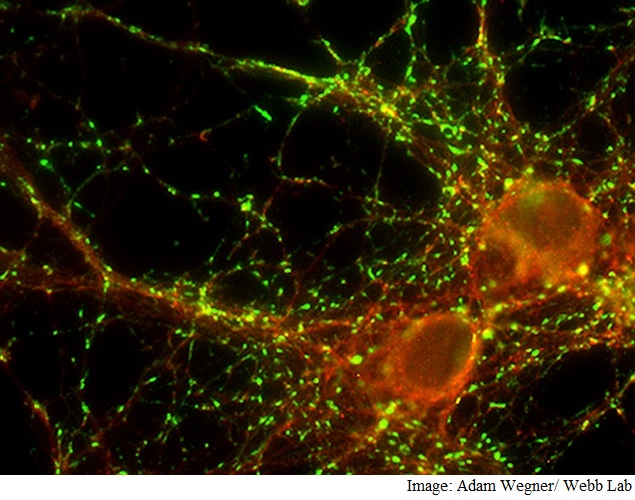- Home
- Science
- Science News
- Insight Into How Memories Are Made Could Herald Alzheimer's Treatments
Insight Into How Memories Are Made Could Herald Alzheimer's Treatments

Researchers have gained fresh insights into the changes at molecular and cellular level in the brain while forming memories.
The findings can help people with Alzheimer's get back their memories, the researchers said.
Every time we make a memory, somewhere in our brain a tiny filament reaches out from one neuron and forms an electrochemical connection to a neighbouring neuron.
The filaments that make these new connections are called dendritic spines and, in a series of experiments, the researchers report that a specific signalling protein, Asef2, plays a critical role in spine formation.
This is significant because Asef2 has been linked to autism and the co-occurrence of alcohol dependency and depression.
"Alterations in dendritic spines are associated with many neurological and developmental disorders, such as autism, Alzheimer's disease and Down Syndrome," said lead researcher Donna Webb, an associate professor at Vanderbilt University.
"However, the formation and maintenance of spines is a very complex process that we are just beginning to understand," Webb said.
Neuron cell bodies produce two kinds of long fibres that weave through the brain: dendrites and axons.
Axons transmit electrochemical signals from the cell body of one neuron to the dendrites of another neuron.
When one of the dendritic filaments makes contact with one of the axons, it begins to adhere and to develop into a spine.
The axon and spine form the two halves of a synaptic junction. New connections like this form the basis for memory formation and storage.
Autism has been associated with immature spines, which do not connect properly with axons to form new synaptic junctions.
However, a reduction in spines is characteristic of the early stages of Alzheimer's disease. This may help explain why individuals with Alzheimer's have trouble forming new memories.
"Once we figure out the mechanisms involved, then we may be able to find drugs that can restore spine formation in people who have lost it, which could give them back their ability to remember," said Webb.
The findings were published in Journal of Biological Chemistry.
Catch the latest from the Consumer Electronics Show on Gadgets 360, at our CES 2026 hub.
Related Stories
- Samsung Galaxy Unpacked 2025
- ChatGPT
- Redmi Note 14 Pro+
- iPhone 16
- Apple Vision Pro
- Oneplus 12
- OnePlus Nord CE 3 Lite 5G
- iPhone 13
- Xiaomi 14 Pro
- Oppo Find N3
- Tecno Spark Go (2023)
- Realme V30
- Best Phones Under 25000
- Samsung Galaxy S24 Series
- Cryptocurrency
- iQoo 12
- Samsung Galaxy S24 Ultra
- Giottus
- Samsung Galaxy Z Flip 5
- Apple 'Scary Fast'
- Housefull 5
- GoPro Hero 12 Black Review
- Invincible Season 2
- JioGlass
- HD Ready TV
- Laptop Under 50000
- Smartwatch Under 10000
- Latest Mobile Phones
- Compare Phones
- Samsung Galaxy A07 5G
- Vivo Y500i
- OnePlus Turbo 6V
- OnePlus Turbo 6
- Itel Zeno 20 Max
- OPPO Reno 15 Pro Mini 5G
- Poco M8 Pro 5G
- Motorola Signature
- Lenovo Yoga Slim 7x (2025)
- Lenovo Yoga Slim 7a
- Realme Pad 3
- OPPO Pad Air 5
- NoiseFit Pro 6R
- Xiaomi Watch 5
- Acerpure Nitro Z Series 100-inch QLED TV
- Samsung 43 Inch LED Ultra HD (4K) Smart TV (UA43UE81AFULXL)
- Asus ROG Ally
- Nintendo Switch Lite
- Haier 1.6 Ton 5 Star Inverter Split AC (HSU19G-MZAID5BN-INV)
- Haier 1.6 Ton 5 Star Inverter Split AC (HSU19G-MZAIM5BN-INV)

















